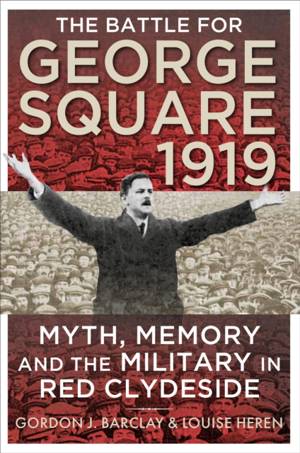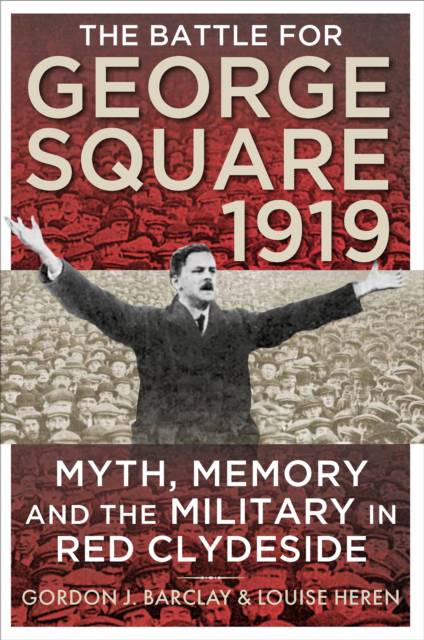
Je cadeautjes zeker op tijd in huis hebben voor de feestdagen? Kom langs in onze winkels en vind het perfecte geschenk!
- Afhalen na 1 uur in een winkel met voorraad
- Gratis thuislevering in België vanaf € 30
- Ruim aanbod met 7 miljoen producten
Je cadeautjes zeker op tijd in huis hebben voor de feestdagen? Kom langs in onze winkels en vind het perfecte geschenk!
- Afhalen na 1 uur in een winkel met voorraad
- Gratis thuislevering in België vanaf € 30
- Ruim aanbod met 7 miljoen producten
Zoeken
The Battle for George Square 1919
Myth, Memory and the Military in Red Clydeside
Gordon Barclay, Louise Heren
Paperback | Engels
€ 34,95
+ 69 punten
Omschrijving
The Battle of George Square, a riot during the Forty Hours Strike in Glasgow, on 31 January 1919, is routinely claimed to be one of the most iconic events in Scottish working-class history. It is also the most mythologised. For a century, the narrative created for the defence of the strike leaders charged with incitement to riot - an 'unprovoked attack on a peaceful crowd' as an act of oppression - has been repeated uncritically by academic and popular writers. Mythology has almost completely replaced reality, most notably in the Scottish education system, where educational materials have been described by two prominent historians as, 'arrant propaganda' and a 'perversion of history'.
Now, Gordon Barclay and Louise Heren have undertaken a meticulous examination of the contemporary evidence to tell a more complex story. In doing so they examine the ways writers have failed to subject the celebratory mythology of this iconic event to adequate scrutiny. They document the creation of the mythology, from the writings of the strike leaders to those who use the mythology of the Battle to promote their own politics. They also examine the legal basis and reality of the military deployment to Glasgow in the aftermath of the riot.
Now, Gordon Barclay and Louise Heren have undertaken a meticulous examination of the contemporary evidence to tell a more complex story. In doing so they examine the ways writers have failed to subject the celebratory mythology of this iconic event to adequate scrutiny. They document the creation of the mythology, from the writings of the strike leaders to those who use the mythology of the Battle to promote their own politics. They also examine the legal basis and reality of the military deployment to Glasgow in the aftermath of the riot.
Specificaties
Betrokkenen
- Auteur(s):
- Uitgeverij:
Inhoud
- Aantal bladzijden:
- 368
- Taal:
- Engels
Eigenschappen
- Productcode (EAN):
- 9780859767415
- Verschijningsdatum:
- 16/12/2025
- Uitvoering:
- Paperback
- Formaat:
- Trade paperback (VS)
- Afmetingen:
- 156 mm x 234 mm
- Gewicht:
- 816 g

Alleen bij Standaard Boekhandel
+ 69 punten op je klantenkaart van Standaard Boekhandel
Beoordelingen
We publiceren alleen reviews die voldoen aan de voorwaarden voor reviews. Bekijk onze voorwaarden voor reviews.









